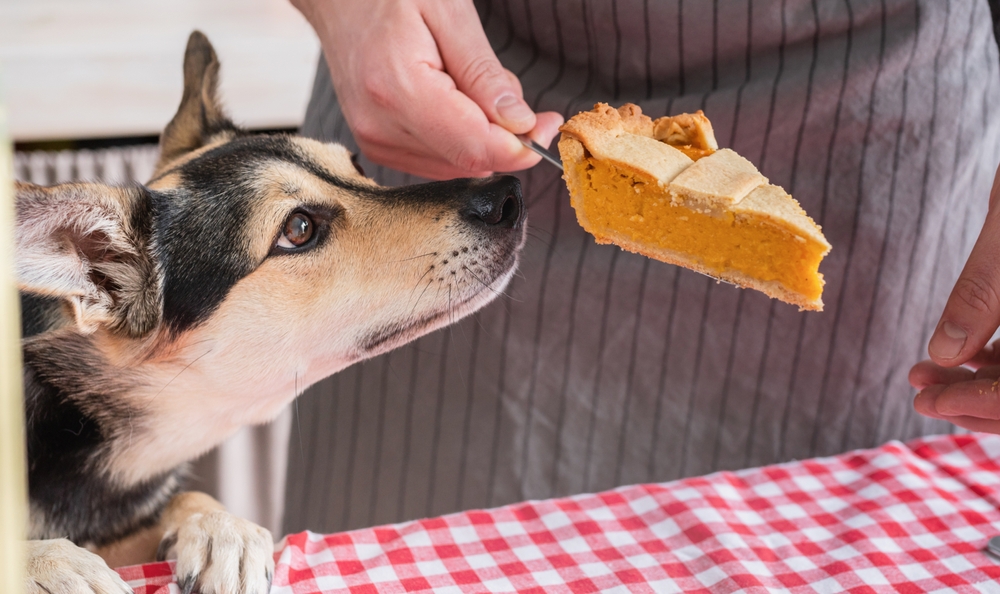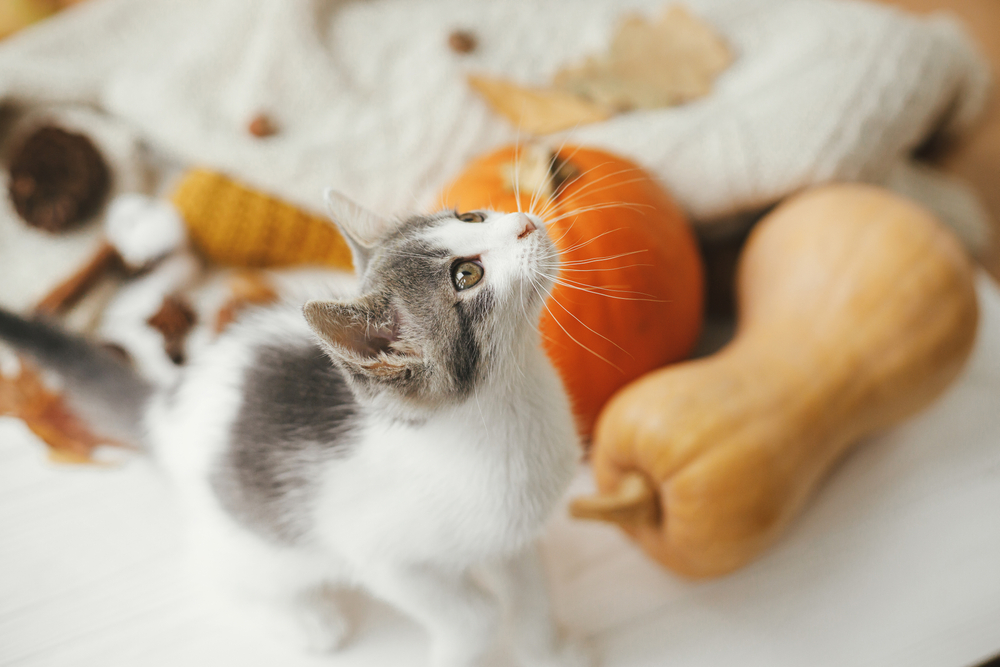Your turkey is defrosting. Check. You have bought the ingredients for the sides and desserts. Check. Your friends and family know the time to arrive. Check. You feel prepared for Thanksgiving, but the holiday can be hazardous for your pet. Follow this Thanksgiving checklist from our Pioneer Animal Hospital team to help safeguard your pet.
Properly identify your pet
Large gatherings can frighten your pet, and many pets go missing around the holidays when they try to escape the crowds. Ensure your pet is properly identified to increase your chances of a reunion should they go missing. Tips include:
- Ensure your pet wears a collar — Ensure your pet wears a well-fitted collar and identification tags that have your current contact information.
- Microchip your pet — Microchipping your pet greatly improves the chances that they will be returned if they get lost, but you also must ensure your contact information in the microchip registry is up to date.
- Photograph your pet — Take a current photo of your pet to post in your neighborhood if they go missing.
Keep your pet inside
Keeping your pet inside decreases their risk of getting lost. Tips include:
- Posting signs — Post signs on your entryways reminding your guests to watch for your pet and ensure they do not go outside.
- Create a pet zone — Provide your pet with a quiet escape from the crowd in case they get overwhelmed by the commotion.
Keep your pet away from the Thanksgiving meal
Any sudden diet change can cause gastrointestinal (GI) upset in pets, but certain foods commonly on the Thanksgiving menu are dangerous to pets, including:
- Turkey — Several aspects of the Thanksgiving bird are problematic for pets, including:
- The turkey skin and dark meat are high in fat, which can trigger a potentially life-threatening condition called pancreatitis.
- Cooked turkey bones are extremely brittle and broken shards can easily damage your pet’s mouth or GI tract.
- Turkey brine is saturated in salt, and ingestion can result in salt toxicosis.
- Onions — Vegetables, such as onions, garlic, shallots, leeks, and chives, commonly used to season Thanksgiving sides contain N-propyl disulfide, a compound toxic to pets that causes oxidative damage to their red blood cells. Signs initially include GI upset, but as the pet’s red blood cells deteriorate, anemia occurs, resulting in weakness, pale mucous membranes, and a reddish tinge to the urine.
- Grapes — Grapes, raisins, and currants are common ingredients in fall dishes, but these fruity offerings contain an unknown toxin that causes kidney failure in pets.
- Chocolate — All chocolate is dangerous for pets—but especially dark chocolate. The delectable treat contains theobromine and caffeine, which cause signs including restlessness, excessive panting, vomiting, and diarrhea. In severe cases, pets can experience heart complications and may have seizures.
- Macadamia nuts — All nuts have a high-fat content that can trigger pancreatitis, but macadamia nuts, which cause muscle weakness, depression, vomiting, and hyperthermia, are especially problematic.
Keep your pet away from your guests’ belongings
Ensure your guests’ purses and coats are kept in a room inaccessible to pets, so they cannot rummage through the contents and ingest a toxic substance, such as:
- Xylitol — Commonly found in sugar-free gum and mints, xylitol causes a dose dependent insulin release in pets that can result in significant hypoglycemia. Signs include vomiting, weakness, and seizures, and in severe cases, liver damage.
- Ibuprofen — Ibuprofen is a non-steroidal anti-inflammatory that can cause GI ulceration and kidney failure in pets. Signs include vomiting, tarry stools, inappetence, lethargy, decreased mentation, and seizures.
- Acetaminophen — Acetaminophen is a common pain reliever that can cause liver failure in pets. Cats are especially susceptible, since they can’t metabolize the drug effectively. Signs include inappetence, lethargy, vomiting, respiratory distress, and facial swelling.
Choose pet-safe Thanksgiving decorations
Pets typically investigate any change to their environment, and decorations are no exception. Choose pet-safe Thanksgiving decorations to prevent a veterinary trip on Thanksgiving day. Adornments to avoid include:
- Candles — Lit candles make your home smell nice, but an investigative paw or nose can be a fire hazard, so choose less dangerous methods.
- Small objects — Small objects, such as decorative turkeys or pumpkins, can be ingested, causing a GI obstruction, which is considered a veterinary emergency. Surgical removal is frequently required.
- Seasonal plants — Several seasonal plants, such as acorns, lilies, autumn crocuses, and chrysanthemums, are toxic to pets. Bring only pet-safe plants into your home.
Keep your pet anxiety free
If your pet tends to be shy or anxious, alleviate their stress during your Thanksgiving gathering with these recommendations:
- Confine your pet — Sequester your pet in a quiet area during the gathering, and provide necessary resources, such as water, toys, and a litter box, play music to mask crowd noise, and offer a food puzzle toy as a distraction.
- Notify your guests — Ensure your guests know not to bother your pet. Some pets become aggressive when their space is invaded, and you don’t want to take your guest to the emergency room on Thanksgiving day.
- Provide anti-anxiety support — Consult our veterinary team to determine if anti-anxiety medication or supplements could benefit your pet.
Checking these tasks off your list should help prevent a veterinary visit on Thanksgiving day. If you would like to have your pet microchipped before your Thanksgiving gathering, contact our American Animal Hospital Association (AAHA)-accredited team at Pioneer Animal Hospital, so we can ensure they are properly identified.


